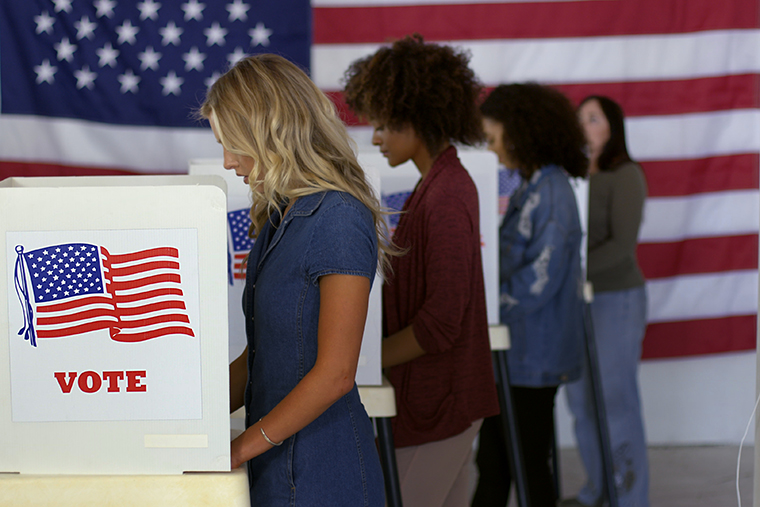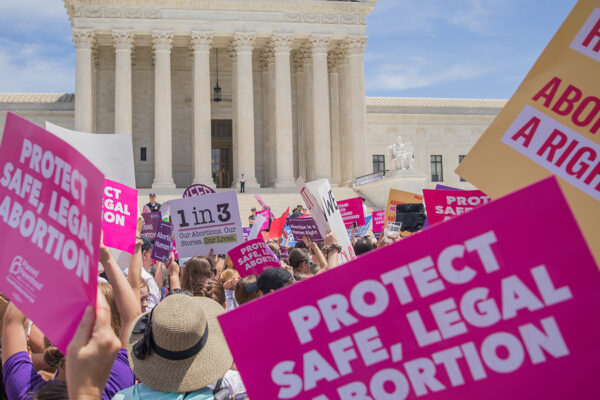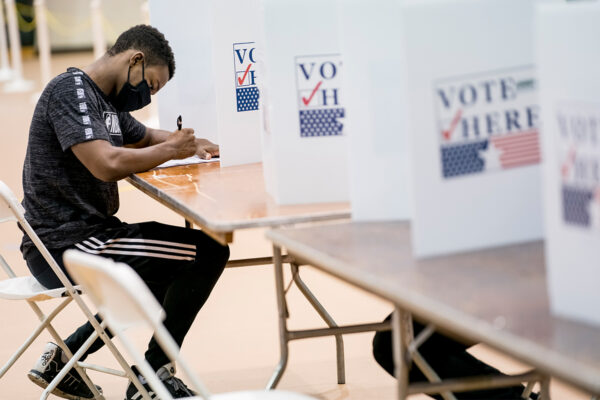On Aug. 2, voters in Arizona, Kansas, Michigan, Missouri and Washington will vote in their states’ primary elections. Thirteen more states will hold primary elections through August and September.
In many districts where the general election isn’t competitive, the outcomes of these primary elections likely will decide who wins in November. Yet — if early primary states are any indication — voter turnout will be dismally low. In Texas, for example, only 18% of registered voters cast ballots in their state’s March 1 primary. In California — where voter turnout was at a record high for its June 7 primary — only 33% of registered voters participated in the primary election.

That’s bad news for most citizens, according to Daniel Butler, professor of political science in Arts & Sciences at Washington University in St. Louis and co-author of “Rejecting Compromise: Legislators’ Fear of Primary Voters.”
“Elections ensure that politicians are responsive to the voters who help them get into office. However, most politicians serve in districts where the general election isn’t competitive,” Butler said.
“The primary always has the potential to be competitive because the challenge can come from someone in the same party,” Butler said. “Politicians thus have incentives to be responsive to primary voters.”
Indeed, in surveys of state legislators, Butler and colleagues found that when voting on legislation, incumbents are most worried about retribution from their primary voters for taking compromise positions. As a result, they’re responsive to a smaller and more partisan segment of their constituents.
Low voter turnout, crowded tickets boost politically extreme candidates
Nearly 40% of Americans identify as independents, making up a considerable voting bloc. However, these voters are less likely to participate in primary elections. Compared with the general election, primary voters are more unified and more extreme, Butler said.
“Voters participating in primaries are more ideologically sorted,” Butler said. “You have voters who largely agree with each other on the issues and yet are out of step with the majority of voters.”
Generally speaking, competition is a good thing. However, crowded primary tickets can have drawbacks. Nationwide, primary voters have more options than ever before. To stand out, candidates without early name recognition may resort to extreme positions that ensure the conversation — and media — is focused squarely on them, Butler explained.
“In this new environment, politicians are incentivized to take extreme positions to raise campaign funds, get airtime and appeal to the slice of the electorate voting in the primary. The moderate compromising candidate simply doesn’t get people participating in primary elections excited, even when that’s what most voters want,” Butler said.
Further complicating the issue: Party leaders have less ability to influence who wins primary elections today, thanks in part to fewer limits on campaign fundraising and the rise of social media to amplify campaign messages, Butler said. Take Eric Greitens’ campaign in Missouri, for example. The GOP establishment is lining up against him, yet he continues to lead in GOP polls.
Want better general election candidates? Vote in primary
Too often moderate and independent voters think that voting in the general election is enough and then lament the polarization of elected officials. According to Butler, increasing moderate voters’ participation in primary elections is one of the most effective ways to combat hyperpartisanship.
“Politicians are most worried about their primaries, and they are going to focus on appealing to voters in that electorate,” he said. “If voters want to make a difference, they need to participate in the election that matters — they need to participate in primaries.”
If voters want to make a difference, they need to participate in the election that matters — they need to participate in primaries.
Daniel Butler
“We have a long tradition of encouraging voting as part of one’s civic duty, but we should create a culture where doing one’s civic duty means voting in primary elections.”
For some, this can be difficult because they simply do not identify with a particular party, Butler acknowledged. But that becomes a self-fulfilling prophecy.
“When independents and moderates do not participate in primaries, politicians have no incentives to take the positions those voters want,” Butler said.



